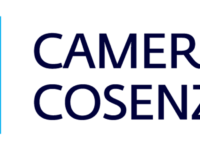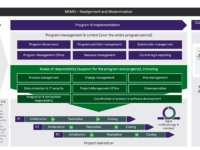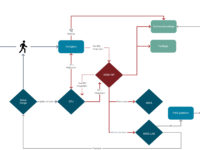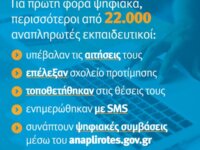Karolinska University Hospital is piloting a new model for nurse-led innovation. The model consists of a framework for enabling nursing organisations to work with innovation and a nurse-led innovation hub concept, where nurses can collaborate with the industry to co-develop solutions for healthcare. Through this, the hospital puts nurses in the driving seat of innovation in healthcare to both develop better solutions for healthcare and promote a sustainable work life for frontline staff.
Case Study Library
Where innovations are collected and shared to disseminate and replicate good ideas

Innovations:
0
This website, as well as any data and map included herein, are without prejudice to the status of or sovereignty over any territory, to the delimitation of international frontiers and boundaries and to the name of any territory, city or area.
The NEMO program is a forward-thinking initiative reimagining Hamburg's public registry offices to meet future demands by integrating digital transformation with user-centric services. Developed in response to an urgent need for modern, efficient public services, the program orchestrates a holistic transformation by managing 16 interconnected projects aiming to digitize citizen interactions by including agile management, cross-sector collaboration, and advanced technology.
Rainlevelr is a joint approach to reduce the risk of flooding. By utilizing the water basins of horticultural companies, the Delfland horticultural area can absorb heavier downpours, thus preventing flooding for both the businesses and the surrounding area. In Rainlevelr, regional authorities, ‘Glastuinbouw Nederland’ and horticultural companies collaborate closely. The uniqueness of this innovation lies in the collaboration among various stakeholders involved in the use of water buffers…
Case Study
Creating public value: New Personnel Requirements Plan and innovative recruitment methods.

The innovation strategically aligns the Chamber of Commerce of Cosenza's (Camera di Commercio di Cosenza) personnel approach with its evolving goals and societal needs. It introduces a fully innovative, multidimensional recruitment process, impacting professional profiles, job announcements, selection processes, and communication strategies. This benefits the Chamber by enhancing recruitment efficiency and attracting qualified candidates, seemingly distant from institution but capable of…
Case Study
Becoming Agile: a way to deliver high quality products and solve long standing reform challenges in…
To improve the Government's response to problems and delivery of products, the Office of the Prime Minister of Croatia introduced Agile methodology and Agile teams, which mimicked startups in using iterations and learning to inform their next move. All governments have policy challenges that seem too complex to be solved. These challenges span across several departments, have some areas where jurisdiction of departments is unclear, and any intervention would have serious impact on all citizens.
To help citizens, health professionals and authorities to handle the Covid-19 pandemic, TISK IKT, a set of interconnected digital solutions, was set up by the Norwegian Directorate of Health. Through exchanging health data, it set a national record in cooperation between 9 government agencies and the medical association to innovate new digital solutions at extremely high speed.
The implementation of the OKRs (Objectives and Key Results) methodology in the National Agency on Corruption Prevention (NACP) was developed to address performance management, transparency, and team clarity and coordination issues. OKRs have benefited the organization by providing a structured framework to set, track, and measure objectives, thus improving accountability and goal alignment. This marks the first experience of implementing this approach in the Ukrainian public sector, drawing…
The Greek education system needs about 50,000 substitute teachers every year to staff schools. In order to begin teaching, these teachers have to travel to their district education headquarters to sign their one year contract with the state. Through the Substitute Teachers Platform, the contract is signed digitally, avoiding unnecessary travelling and allowing for the necessary information systems of the public administration to be updated in an interoperable way. This innovation thus saves…
The UK government launched a new “youth hub” offer of employment services to young people affected by the disruption of the covid-19 pandemic. Through four days of workshops with key stakeholders, which included engaging young people, Impetus ran a theory of change process to enable one of the flagship hubs to co-design their new service to best serve young people. This is the first time that Impetus has applied its theory of change tools, and its impact focus to a government policy…
The UK Government Policy Profession has piloted a new model called Shared Policy Capability Project to support department leaders and policy makers undertake a facilitated self-assessment of their policy environment and identify opportunities for improvement. Through this the government aims to build capability at a department level and enable policymakers to take an active role in improving the environment in which they make policy.




